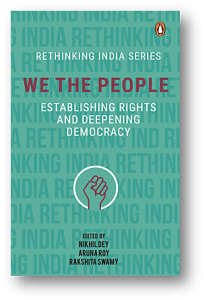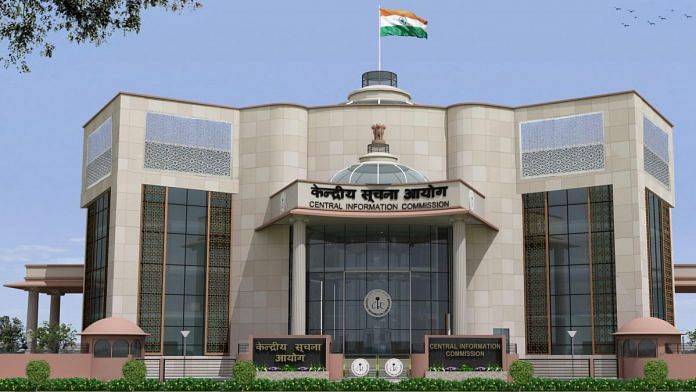Through various pronouncements, the courts have held that the right to information is a fundamental right flowing from Article 19 and Article 21 of the Constitution, and that transparency in the working of public authorities is critical in a democracy.
The RTI Act has empowered Indians to question governments and has initiated the critical task of redistributing power in a democratic framework. With more than six million information applications filed every year, the Indian RTI Act is the most extensively used transparency legislation globally. The law has been used extensively by people on a range of issues—from holding the government accountable for the delivery of basic rights and entitlements to questioning the highest offices of the country.
It is perhaps this paradigm shift in the locus of power through the use of the law that has resulted in consistent efforts by the powerful to denigrate it. There have been consistent attacks on the institution of information commissions, which adjudicate on the appeals and complaints of citizens who have been denied access to information under the sunshine law.
The central and state governments have realized that an effective way of curbing access to information that is inconvenient and embarrassing for governments to disclose is to undermine the functioning of information commissions. As per the RTI Act, the appointment of commissioners in the Central Information Commission is made by a committee comprising the prime minister (chairperson), a cabinet minister and the leader of the single largest Opposition party in the Lok Sabha, while in states, the appointments are made by the chief minister, a cabinet minister and the leader of the Opposition in the Assembly.
Also read: Hearings by State Information Commissions fell to 44% in July from 80% in June, finds survey
Governments have impeded the functioning of information commissions by not filling vacancies in posts of information commissioners in a timely manner. Vacancies lead to large backlogs of appeals/complaints and concomitant long delays in the disposal of these cases. A report published in October 2019 found that eleven information commissions had a waiting time of more than one year for cases to be disposed, with some taking more than five years! While hearing a matter regarding the non-appointment of information commissioners and the lack of transparency in the appointments, the Supreme Court in its judgment in early 2019 observed that the failure of governments to appoint commissioners was ‘negating the very purpose for which this Act came into force’. The track record of the current central government, which came to power on the plank of good governance, has been particularly poor. Since May 2014, not a single commissioner of the Central Information Commission has been appointed without citizens having to approach courts.
Further, appointments of information commissioners are often made in an arbitrary, non-transparent manner, with mainly retired public servants being appointed in the position. In many states, including Gujarat, Andhra Pradesh and Kerala, the appointments of information commissioners have been set aside by courts due to the lack of transparency in the process of their appointment, or because persons who did not meet the eligibility criteria were appointed as commissioners. Despite the law clearly stating that commissioners should be persons of eminence in public life with wide knowledge and experience from diverse backgrounds, since the RTI law came into effect, an overwhelming majority of chief information commissioners (83 per cent) and information commissioners (nearly 60 per cent) have been appointed from among retired civil servants. Even the Supreme Court of India has commented on the phenomenon of primarily former bureaucrats being appointed as commissioners, observing that ‘it is difficult to fathom that persons belonging to one category only are always found to be more competent and more suitable than persons belonging to other categories’.
The functioning of information commissions themselves has been far from satisfactory. Assessments have shown that commissioners often deny information in violation of the law and are reluctant to use their powers to penalize officials who violate the law, with penalties imposed in only 4.1 per cent of the cases where they were imposable.
Also read: In 15 years, RTI has gone from Indian citizens’ most powerful tool to an Act on life support
In July 2019, the RTI Act was amended to undermine the autonomy of information commissions. The amendments empowered the central government to make rules to determine the tenure, salaries, allowances and other terms of service of all information commissioners in the country. The RTI Act of 2005 fixed the tenure of information commissioners at five years, subject to the retirement age of sixty-five years. Further, the salaries, allowances and other terms of service of the chief of the Central Information Commission was pegged at the same level as that of the chief election commissioner. Those of the central information commissioners and state chief commissioners were on par with election commissioners. The chief and other election commissioners are paid a salary equal to the salary of a judge of the Supreme Court, which is decided by Parliament.
The fixed tenure and high status conferred on commissioners under the RTI Act was to empower them to carry out their functions autonomously, without fear or favour, and direct even the highest offices to comply with the provisions of the law. Empowering the central government to decide the tenure and terms of service of information commissioners compromises their independence; directions to disclose inconvenient information could invite adverse consequences from the central government.
 This excerpt from We The People: Establishing Rights and Deepening Democracy, edited by Nikhil Dey, Aruna Roy and Rakshita Swamy, has been published with permission from Penguin Random House India.
This excerpt from We The People: Establishing Rights and Deepening Democracy, edited by Nikhil Dey, Aruna Roy and Rakshita Swamy, has been published with permission from Penguin Random House India.



